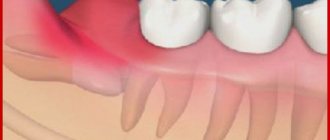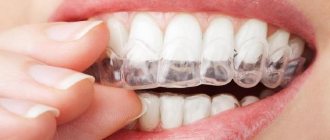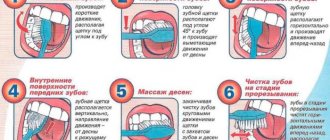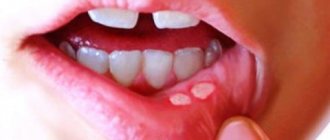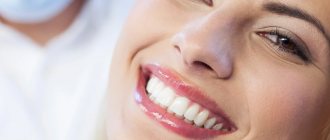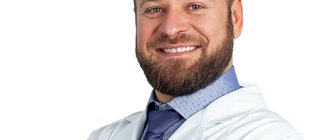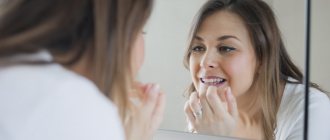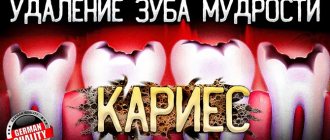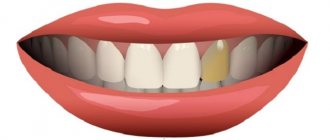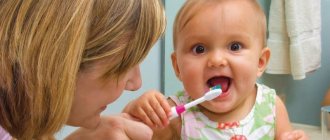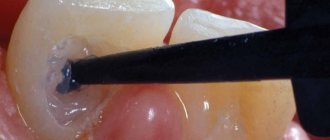Donating blood for analysis is a common procedure , even in some ways natural.
Whatever doctor we visit, be it a simple physical examination or a specific examination for any disease, a blood test is necessary.
But few people think that before collecting material they need to adhere to certain rules of “behavior”.
And in addition to restrictions on foods and drinks, when submitting the study material, in some cases it is not even recommended to brush your teeth .
What is the connection between such an “innocent” hygienic procedure and the reliability of the results of a blood test, and whether it is possible to brush your teeth before donating blood should be understood.
The procedure for donating blood for analysis
Note! Not a single examination, surgery, x-ray, appointment or even physical procedure is complete without a blood test.
This simple procedure allows a specialist to quickly assess the patient’s condition and identify possible deviations, even without general clinical signs of the disease.
Analysis of the material
can be venous or capillary , depending on the purpose of the study (sugar content, the amount of certain hormones, the presence of infections, pathologies and inflammatory processes, etc.).
Taking biochemistry
Biochemical analysis is a kind of “mirror” of the body . The slightest changes in his condition are reflected in the biochemical analysis.
Keep in mind! You should prepare for such an analysis by eliminating all possible causes of false indicators.
In addition to the ban on coffee, sugary drinks, smoking and alcohol , experts recommend not brushing your teeth using toothpaste before the analysis .
Especially when it comes to the study of glucose, urea and sugar.
It is necessary to take into account the quality of reagents that react to any external factors:
- toothpaste contains triclosan and other synthetic substances that have antibacterial properties, which, in turn, can affect the accuracy of the readings;
- saccharin contained in toothpaste directly affects blood glucose levels;
- foaming pastes with the addition of sodium lauryl sulfate affect changes in the protein composition of cells (nitrate compounds can accumulate in the circulatory system).
When prescribing a referral for this test, the doctor does not recommend morning brushing of teeth using toothpaste.
Testing for hormones
You should know! A comprehensive examination of hormones (reproductive, thyroid and pituitary gland) is prescribed to identify serious changes in the body.
Blood material is examined venously, taken on an empty stomach only in the morning (from 8 to 11 am).
It is prohibited to take medications that can change hormonal levels, as well as alcohol, visiting a sauna, any stress (including physical), as well as emotional outbursts.
Peace, rest and a positive attitude are recommended.
The determining factors for the accuracy of the results are time, gender and age of the patient.
This is in no way related to brushing your teeth; in this case, there are no restrictions on the use of toothpaste.
Rules for collecting stool
Before submitting the material (3-4 days before), you must stop taking medications (laxatives, castor and petroleum jelly, rectal suppositories). Stool obtained after an enema or barium intake (during X-ray examination) is not allowed for examination.
Before collecting the test, urinate in the toilet. Next, by natural defecation, collect the stool in a bedpan (previously washed and dried). Feces are collected in a clean, disposable container, no more than 1/3 of its volume.
The material must be delivered to the laboratory within 3 hours from the moment the analysis is collected. During this period, it is advisable to store the analysis in the cold (+2...+8C), avoiding freezing.
For sugar
It is worth noting! In this case, along with serious restrictions on food and drinks (you can’t even drink sweet tea or water 8 hours before taking the material), there is also a ban on toothpaste.
What is the reason for this limitation?
The fact is that any, even the most natural toothpaste contains sugar .
It is absorbed through the mucous membrane into the blood and naturally affects sugar levels in the circulatory system.
To avoid distortions in the results of a blood sugar test, and therefore not to donate the material again, you should avoid brushing your teeth using toothpaste immediately before the procedure.
Taking blood from children from 1 day to 12 months
- Try to schedule blood sampling for infants during the break between feedings, closer to the second feeding.
- 30 minutes before the procedure, the child should drink 50 ml of the liquid that you usually give him.
- When taking blood, the child’s hands must be warm. If you come from outside or the room is not so warm, the child’s hands need to be warmed. This is a mandatory and very important condition, because the amount of blood that will be received by the health worker depends on its fulfillment.
- Immediately before blood is drawn, the child should be positioned so that he is as comfortable as possible. A couple of minutes should pass before the nurse begins drawing blood. This time will be enough for the baby to calm down and get used to the environment a little.
Blood test for donation
Stay up to date! In any donor center, after registration, a step-by-step examination of the blood of a potential donor is carried out:
- in the laboratory, material is taken from a finger to determine the blood type, Rh factor and the amount of hemoglobin;
- a transfusiologist, as a result of an examination, based on capillary examination, gives permission for donation;
- All donated blood is examined for the presence of HIV infection, and is also tested for all types of hepatitis and syphilis.
Before the donation , it is mandatory to drink sweet tea with cookies or other baked goods to ensure the donor’s normal well-being.
Therefore, the issue of prohibiting brushing teeth is not discussed; the hygiene procedure is not an obstacle to this manipulation.
17-Ketosteroids
When determining the daily excretion of 17-KS, two days before urine collection and on the day of collection, exclude intensely pigmented (colored) foods from the diet: beets, carrots, citrus fruits, multivitamins, red wine, grapes, watermelons.
Material for research: 24-hour urine. Patient preparation. 3 weeks before the study, it is necessary to exclude medications that affect the determination of 17-KS. On the eve of the study, physical activity, smoking, and stress are excluded. Urine is collected in a clean wide-necked container with a lid. At the end of urine collection, it is necessary to measure the volume of urine excreted with a measuring cylinder, mix thoroughly and then deliver a 20 ml portion to the laboratory. In the direction for the study, it is necessary to indicate the volume of urine, time of collection, age and gender of the subject.
Urine culture (with antibiotic sensitivity testing)
Urine collection must be carried out before the start of drug treatment and no earlier than 5 days after the course of treatment. Collect urine in a sterile container: DRAIN THE FIRST 15 ml OF URINE INTO THE TOILET. Collect the next 3-10 ml in a sterile container and screw the lid on tightly. Deliver the biomaterial to the laboratory within 1.5-2 hours after collection. It is allowed to store the biomaterial in the refrigerator (at t +2° +4° C) for no more than 3-4 hours. If delivered to the laboratory later than the specified time, the results of urine culture may be unreliable.
Urine collection for determination of UBC (bladder cancer antigen)
It is recommended to collect a morning urine sample. An arbitrary portion of urine that has been in the bladder for 3 hours or more is subject to examination. The biomaterial is delivered to the laboratory within 3 hours after collection.
Before gastroscopy
First of all, you should understand what gastroscopy is and for what purpose this examination is prescribed.
Need to know! Gastroscopy is an examination of the stomach with a special flexible probe (gastroscope).
A special light bulb is attached to one side of such a device, and a camera is attached to the other, with the help of which the state of the stomach is recorded on the screen.
The probe is inserted through the mouth, passes the esophagus and enters the stomach, examining it
for fibrous formations, ulcers and polyps.
Gastroscopy also allows you to take a sample of stomach tissue for a biopsy.
How to properly prepare for such an examination?
First of all, the stomach must be empty, and the patient must not eat anything (6-8 hours) or drink anything (2 hours) before the procedure.
Remember! Blood must first be donated to identify various side diseases, as well as to prevent unwanted complications:
- a general (clinical) analysis is prescribed to identify pathologies and inflammatory processes in the body;
- determination of blood type and Rh factor is necessary to prevent unwanted reactions and complications;
- a coagulation test is prescribed to identify various disorders in the hemostatic system, since minor bleeding is possible when a gastroscope is inserted;
- the presence of hepatitis B and C antibodies, HIV infection is a risk area for infection of the doctor and staff.
These tests have nothing to do with brushing your teeth, and the use of toothpaste will not in any way affect the reliability of the results (the number of white blood cells, hemoglobin and platelets, red blood cell speed, etc.).
Keep in mind! If the patient is prescribed a biochemical blood test, then you should refrain from brushing your teeth using toothpaste immediately before taking the test (see biochemical blood test).
Bacteriological studies:
Discharge from the eyes
The material is taken from the affected areas at the height of the inflammatory process in compliance with the rules of asepsis. At least 5-6 hours before the study, all medications and procedures are canceled. The doctor takes the material with a separate swab for each eye.
Conjunctiva
If there is abundant purulent discharge, use a sterile dry cotton swab to take pus from the inner surface of the lower eyelid moving towards the inner corner of the palpebral fissure. It is necessary to ensure that the eyelashes do not touch the tampon (hold the eyelids with your hands).
Edge of the eyelids
Crusts of pus are removed with tweezers. The material is taken from the sore at the base of the eyelashes.
Cornea
The material for research is taken after anesthesia with a sterile dry cotton swab.
Nasal discharge
The material from the nasal cavity is taken with a dry sterile cotton swab, which is inserted deep into the nasal cavity. A separate swab is used for each nasal passage.
Nasopharyngeal discharge
Material from the nasopharynx is taken with a sterile posterior pharyngeal cotton swab, which is inserted through the nasal opening into the nasopharynx. If a cough begins, the tampon is not removed until it is over. To test for diphtheria, films and mucus from the nose and throat are examined simultaneously.
Oral material
Material from the oral cavity is taken on an empty stomach or 2 hours after a meal with a sterile cotton swab from the mucous membrane or its affected areas at the exits of the ducts of the salivary glands, the surface of the tongue, and from ulcers. If there is a film, remove it with sterile tweezers.
Ear material
The doctor takes the material for inflammation of the middle ear. The skin of adjacent areas is treated with an antiseptic solution.
Oral hygiene rules without using toothpaste
People are accustomed to brushing their teeth from an early age, and recently both advertising and newfangled medical TV shows, forums and blogs have been aimed at improving this process.
New electric multifunctional brushes for children and adults are being invented, toothpastes with incredible composition and effect are being advertised.
But one point is missed here - brushing your teeth at night is important.
It is the “overnight” leftover food that harms dental health; the morning procedure is more likely to eliminate psychological discomfort (odor, plaque, etc.).
Therefore, by brushing your teeth thoroughly before going to bed, in the morning (if required by the doctor before donating blood), you can do without toothpaste.
You should know! What can replace morning brushing of teeth:
- In the evening, on the eve of the morning blood test, you should thoroughly brush not only your teeth, but also your tongue, gums and the inside of your cheeks. It is in these places that a huge number of microbes accumulate.
- In the morning , you need to brush your teeth and tongue without toothpaste to remove plaque and freshen your mouth.
- Be sure to rinse your mouth with water or a special solution (10 - 12 drops of hydrogen peroxide per 250 grams of warm water). Rinsing will remove bad breath and neutralize bacteria that appeared at night.
It is prohibited before taking blood tests .
This is explained by the fact that, in addition to sugar, they contain many harmful synthetic compounds, dyes and flavors that can affect the results of the analysis.
Conjunctival smears
The material should be obtained with a dry sterile cotton swab on a plastic base under local anesthesia (2 drops of decaine solution). Pulling back the lower eyelid, move the swab 4-5 times along the conjunctiva with rotating movements, grabbing the outer and inner corners of the eye.
After collecting the material, place the swab (the working part of the probe with a cotton swab) into a sterile disposable 2 ml Eppendorf tube with transport medium (TS) (colorless).
Having immersed the working part of the probe in the transport medium, carefully break off the plastic rod at a distance of no more than 0.5 cm from the working part and leave the swab with the material in the transport medium.
Close the test tube tightly with the lid, avoiding any gaps or creasing of the inside of the lid, and label it in accordance with the direction form
